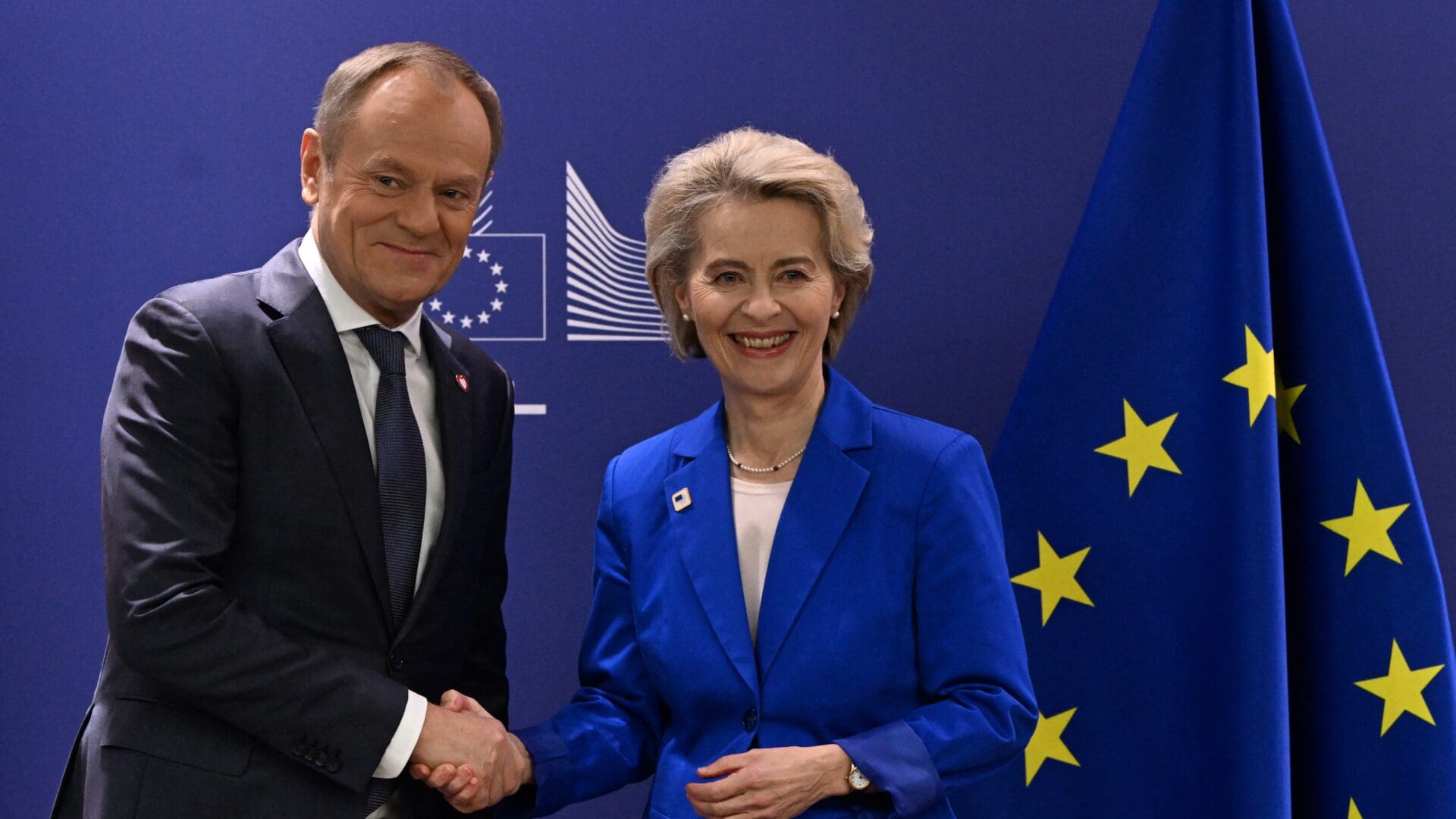Poland is close to drawing down EU funds that have been frozen so far, as reported by POLITICO. According to the Brussels-based news portal, around €6.9 billion of the cohesion funds earmarked for the country under the 2021-2027 budget could be disbursed in late March or early April.
Justice Commissioner Didier Reynders visited Warsaw last Friday to meet with Polish Justice Minister Adam Bodnar, to discuss reforms needed to unlock EU funds. ‘This is a change that is warmly welcomed,’ Reynders said at a joint press conference, referring to the reforms that have been implemented and those that are yet to be implemented.
The European Commission froze approximately €75 billion in cohesion funding for Poland in October 2022, citing concerns about judicial independence and the rule of law. Simultaneously, the Commission denied Poland access to the post-pandemic recovery fund for the same reasons. This amounts to around €59.8 billion in loans and grants.
Poland’s situation is very similar to that of Hungary,
with the difference that Warsaw has fewer conditions to fulfil in order to fully unfreeze EU funds.
The Polish government ‘only’ needs to implement a comprehensive judicial reform, including a restructuring of the National Council of the Judiciary (KRS). This body, responsible for appointing new judges, has been deemed politically motivated by European courts and is allegedly staffed by individuals affiliated with the former ruling Law and Justice (PiS) party.
To trace the origins of the rule of law debate between the Commission and Warsaw, we need to revisit the year 2015. The incoming PiS government at that time embarked on a judiciary reform, a move that wasn’t well-received in Brussels. The most criticized aspect of this comprehensive reform by Brussels was related to the Polish Supreme Court. PiS reduced the retirement age for judges from 70 to 65, while granting the president the authority to extend the contracts of judges, who he believed could fully perform their duties, by five years at his discretion.
Brussels accused the government of undermining the independence of the Polish Supreme Court with its decision.
Another aspect of the reform allowed for investigations and potential sanctions to be imposed on judges based on their convictions. The disciplinary hearings and procedures were to be conducted by judges selected through parliament. The European Commission criticized these reforms, stating that ‘judges are not insulated from political control, thus compromising judicial independence.’
It is important to note that the Commission has also initiated the Article 7 procedure against Poland, citing concerns related to the independence of the judiciary in Warsaw.
The PiS government attempted to address the Commission’s concerns,
but the changes implemented by the Mateusz Morawiecki-led cabinet were not very well-received in Brussels.
Let’s examine then the actions taken by Donald Tusk’s government to access EU funds. In early January, Justice Minister Adam Bodnar submitted a proposal to restructure the KRS, aiming to appoint other judges to the panel and exclude judges nominated by the previous council from the process.
The proposal has faced substantial criticism from the Polish Supreme Court, which argues that it would place many judges in an illegal position and potentially create chaos in the judiciary.
The new Justice Minister has also played a key role in the Tusk government’s attack on the Polish public media. Additionally, Bodnar was involved in the arrest of two PiS politicians—Mariusz Kamiński, the former Interior Minister, and his deputy, Maciej Wąsik. According to former Prime Minister and current opposition leader Mateusz Morawiecki, this marks a return to Poland’s darkest days, with political prisoners in the country for the first time since the fall of communism.
The Polish Supreme Court has declared the attempts to restructure the state media unconstitutional.
It is crucial to note that Brussels, known for its sensitivity to the rule of law, has tacitly supported the actions of the Tusk government for weeks, despite their apparent contradiction to the rule of law. Last week, in an unusual statement, Vera Jourová, the Commissioner for Coordination on Political Values and Transparency, described the Tusk government’s crackdown on public media as ‘decisive,’ but emphasized that the inherited situation did not necessarily ‘authorize any action.’
However, all signs indicate that the new Brussels-backed Polish government will soon be able to access frozen EU funds. Warsaw has formally informed the Commission that the conditions for the release of part of the funds have been met, and now only Brussels’ approval is needed to release the money.
A presidential veto could be an obstacle to the implementation of reforms. Both Brussels and Warsaw are prepared for this possibility, with Financial Times reporting that Andrzej Duda’s veto could be overridden by the parties when some of the money is disbursed.
In light of recent developments, there is no doubt that Brussels is applying double standards to Member States. In contrast to the actions of the Tusk government, Hungary has indeed achieved tangible results in terms of judicial reforms, leading to the Commission's decision last December to release €10.2 billion in cohesion funding.
Nevertheless, immediately after the decision, the Commission faced criticism from the European Parliament for allegedly giving in to Viktor Orbán's blackmail while Hungary has not made any substantial progress on judicial reform.
Interestingly, the European Parliament—which had threatened to sue the Commission over Hungarian funds and constantly wants to revoke Hungary's voting rights—did not hold a plenary debate on the state of the rule of law in Poland, did not adopt a condemnatory resolution following Warsaw's blatantly unconstitutional moves, and is not actively working to ensure that Poland does not receive a single cent of the funds it is owed. This is despite tens of thousands of people taking to the streets in Warsaw to protest against the cabinet following the authoritarian actions of the Tusk government.
Another telling example of double standards in Brussels is the statement by Manfred Weber, President of the European People's Party (EPP), who told the Polish state news agency PAP that he fully supports Donald Tusk and sees nothing wrong with the new government's actions. Contrarily, Weber asked the European Parliament to review the Commission's decision on the disbursement of Hungarian funds. ‘It's enough to look at what is happening in Poland and the reactions in Brussels [to dispel] any doubts about what kind of incorrect, hypocritical, and double-standard gang rules Brussels,’ Gergely Gulyás, the minister leading the Prime Minister’s Office commented.
Moreover, during Commission President Ursula von der Leyen's recent speech to the European Parliament, it was disclosed that the freezing of Hungarian funds is minimally related to the rule of law and the independence of the judiciary.
Von der Leyen emphasized that the additional €20 billion in aid to Hungary would not be disbursed
as long as the Hungarian government insists on its positions regarding gender ideology and migration policy.
In response, Prime Minister Viktor Orbán firmly stated that Hungary would not compromise its stance on these issues, regardless of the amount of money at stake.
Related articles:








